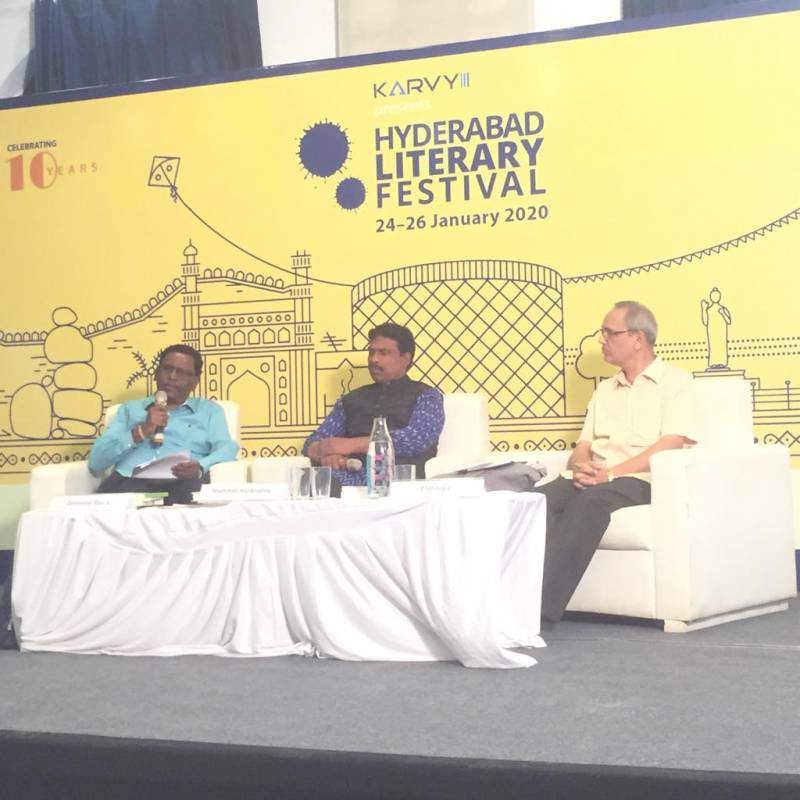Indian writers in English ignore societal issues: Telugu academic Damodar Rao
By Amritha Mohan
Hyderabad: The visibility and glamour associated with Indian writing in English is often not enjoyed by regional literature in the country. This was stated by renowned Telugu academic and translator K. Damodar Rao in a conversation on ‘Telangana literature in translation’.
Participating in the Hyderabad Literary Festival (HLF), the writer said on Saturday, “Indian writers in English fiction are mostly concentrated on macro issues or larger issues. However, regional writers invariably tend to focus on micro issues. They write extensively on social divisions, unequal social structures and discrimination. This is largely absent among Indian writers in English, because they don’t grapple with social structures and inequality.”
However, the writer did not forget to mention that translation is essential to gaining visibility for the regional language.
“English is the means to express our anguish, but on a global level. It is the only way to earn solidarity with the marginalised from across the world,” said the academic.
Elanaaga, one of Telangana’s known translators, joining the discussion and commenting about allegations that Telangana did not have any ‘real’ poets, said “Before Telangana came into existence, there were several unjust allegations that Telangana region of Andhra Pradesh did not have real poets. Actually, we had so many luminaries. It was only that they didn’t write free verse, but wrote only metrical verse.”
Elanaaga is known for his translations of Vattikkotta Alwar Swamy’s poetry, who was instrumental in the establishment of Telangana’s library movement. Swamy is also considered to be the first novelist in Telugu literature.
‘Much of our folklore has not been translated’
The Telugu writers were unequivocal in their assertion that much of Telangana’s folklore was yet to be translated.
“Telangana has a great history of storytelling. As most of them are not translated, it is our literary contributions that are getting ignored. Our department is taking steps to address this gap,” said Mammidi Hari Krishna, poet and Director, Department of Language and Culture, Telangana.